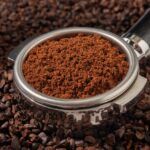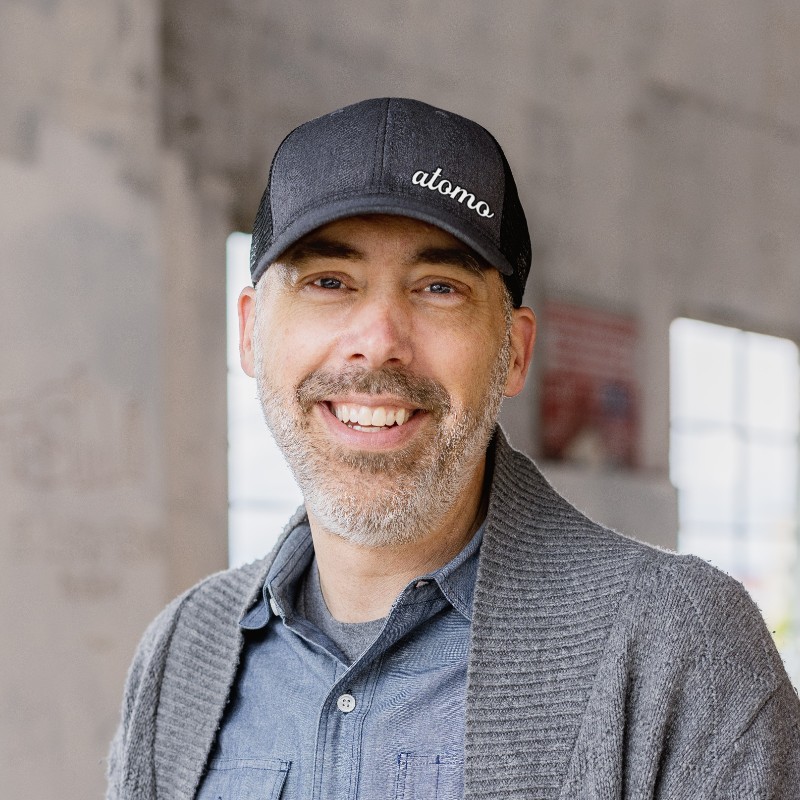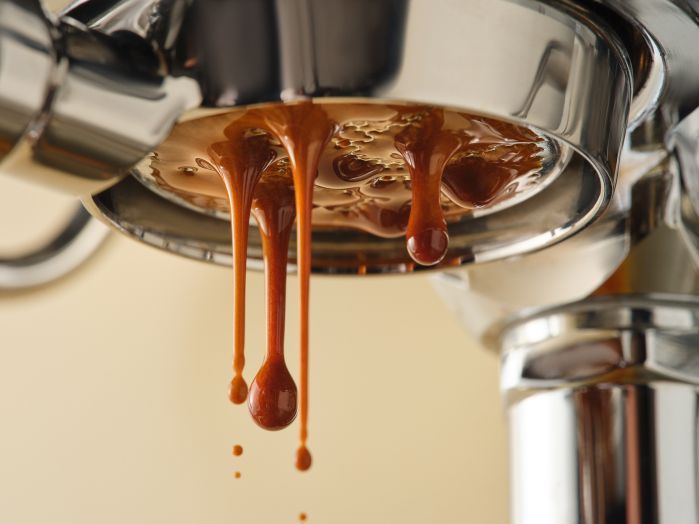
[Disclosure: AgFunder, parent company to AgFunderNews, is an investor in Atomo.]
Atomo—maker of the ‘world’s first beanless espresso’—has opened a 33,547sq ft roastery in Seattle capable of producing four million pounds of ground ‘coffee’ a year from upcycled date pits.
At full capacity, the new roastery could supply around 2,000 coffee shops, says the startup, which is hoping to generate sufficient traction through this first site to raise additional funds to build a factory making 40 million pounds a year.
“Our aim is to prove customer adoption, form strategic relationships with large coffee companies, and then build a factory 10x the size,” says cofounder and CEO Andy Kleitsch, who has just struck a deal to get Atomo’s beanless espresso on the menu at 58 Bluestone Lane coffee shops and additional customers in Boston, Los Angeles, Chicago, Austin, Seattle, and New York City.
At this early stage, Atomo is charging coffee shops a hefty $20.99 a pound (vs $10-14lb for comparable coffee products) but has “not had any pushback,” claims Kleitsch, who cofounded Atomo with Dr. Jarret Stopforth in 2019.
“Taste is what matters,” he tells AgFunderNews. “Typically, when we meet [potential customers], they’re initially skeptical… is it going to taste good? Then they try it, and they can’t believe it, and the conversation is all about how do we incorporate this into our menu? Pricing hasn’t been an issue.”
Although Atomo’s product can work in multiple settings (ready-to-drink cold brew, grounds, pods), its first product is “engineered to work with professional espresso machines that have 9-12 bars of pressure and a specific diameter on their portafilter,” says Kleitsch. “We’ve really made the best experience for a professional coffee shop.”
 Andy Kleitsch, cofounder and CEO, Atomo Coffee: ‘Our aim is to prove customer adoption, form strategic relationships with large coffee companies, and then build a factory 10x the size…’ Image credit: Atomo
Andy Kleitsch, cofounder and CEO, Atomo Coffee: ‘Our aim is to prove customer adoption, form strategic relationships with large coffee companies, and then build a factory 10x the size…’ Image credit: Atomo More consistent pricing, availability, quality
But why make beanless coffee in the first place? And is Atomo solving a problem consumers don’t know about, or frankly care about, at least right now?
While coffee is still an affordable luxury right now, things are changing rapidly, says Atomo, which is one of a growing number of startups developing alternatives, from Minus Coffee and Voyage Foods (using upcycled plant-based ingredients) to biotech startups such as Stem and California Cultured (growing ‘real’ coffee from plant cell culture),
In part due to climate change, the amount of land that can sustain coffee is dropping, while Arabica—the favored species— has weak genetic diversity and only grows at certain temperatures, which means moving to higher altitudes as temperatures rise.
By 2050, according to one recent analysis, the land suitable for growing Arabica could be reduced by 50%, which means we’re going to see a significant reduction in production, while demand for coffee is also rising, particularly in large markets such as China and India.
And while most coffee drinkers may be blissfully unaware that their cup of Morning Joe is under threat, says Kleitsch, all of the leading coffee companies are acutely aware of the problem and are actively exploring alternatives to futureproof their supply chains.
As for pricing, harvests can vary wildly from year to year making the coffee market notoriously volatile, he says. But if you normalize the curve, especially for premium-grade coffee, prices are only going in one direction: up.
And while this should make Atomo’s products increasingly competitive, its ability to deliver a consistent supply of quality product is just as important, adds Kleitsch, who recently raised an undisclosed sum from Japanese beverage giant Suntory, owner of the BOSS cold brew coffee brand, taking Atomo’s total funding to $53 million.
“The largest coffee companies are the ones that have done the most research into the problems facing the coffee supply chain, and they’re the most interested in solving them. Our vision is aligned with Suntory’s and we’re looking at potential solutions we can bring to market.”
A smoother, less bitter cup
For consumers, meanwhile, there are multiple levers to pull when it comes to beanless coffee, he says.
Sustainability is one factor, with Atomo’s espresso generating 83% fewer carbon emissions and using 70% less farmland than its conventional counterpart according to an analysis from sustainability platform HowGood.
However, taste is far more important to consumers, says Kleitsch: “We have created something that’s less bitter [than regular coffee] with more chocolate, dried fruit and graham cracker notes. It’s drinkable. It’s approachable, and you can dial up or down the caffeine, which we get from green tea; you don’t get the jitters you can get from regular coffee.”
Using date seeds, ramon seeds, sunflower seed extract, fructose, pea protein, millet, lemon, guava, and defatted fenugreek seeds, Atomo also delivers a smoother cup you don’t need to load with cream and sugar for taste, he claims.
“70% of consumers don’t like acidity and bitterness in coffee and typically mask it with cream and sugar. We’re creating a product that addresses a lot of the problems consumers have with coffee, but with the mouthfeel, aroma and taste they expect.”
He adds: “It’s our experience that consumers that typically don’t like black coffee can drink our coffee black. But we’ve also formulated it to blend perfectly with milk and creamers, so you don’t get flocculation when you add dairy or plant-based milks.”
 Atomo’s first product is “engineered to work with professional espresso machines that have 9-12 bars of pressure and a specific diameter on their portafilter,” says CEO Andy Kleitsch
Atomo’s first product is “engineered to work with professional espresso machines that have 9-12 bars of pressure and a specific diameter on their portafilter,” says CEO Andy Kleitsch The cross-Maillard reaction
So how is Atomo doing it?
According to Kleitsch: “We take the date pits that would otherwise be burned or thrown away from farmers in Coachella Valley, and put them through a series of cleaning, washing, drying and granulation steps to get them prepared for use in our Seattle roastery.
“Date pits by themselves don’t taste like coffee, but we infuse them in a marinade and add heat to create what we call the cross Maillard reaction to generate the coffee compounds we’re searching for.”
The competitive set
Asked about other players in the beanless coffee space, Kleitsch insists there’s room in the market for multiple approaches.
“The market is so huge and fragmented, we believe there’s plenty of room for several companies to be very successful in the [alt] coffee space. And so we actually encourage that because no one can agree on their preferred cup of coffee. There’s a lot of room in coffee for variation and for multiple solutions.”
The post Futureproofing your Morning Joe? Atomo opens ‘beanless’ coffee roastery in Seattle appeared first on AgFunderNews.
